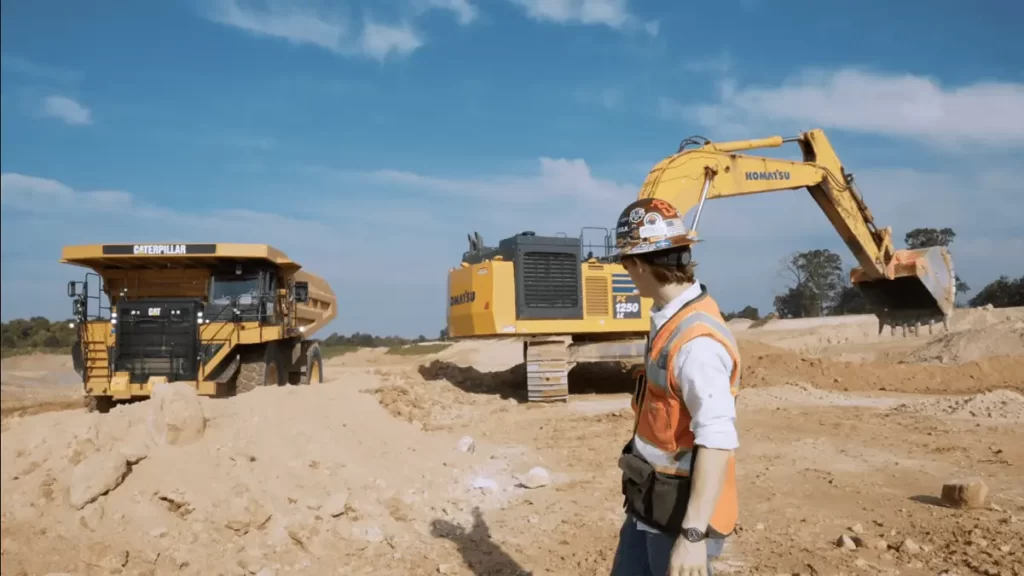What is Construction Management?


What is Construction Management?
What Do Construction Managers Do?
To lead a team of workers and estimators in achieving a successful outcome for the construction a project manager is necessary. A construction manager looks over the entire task, keeps the motivation alive, communicates, and has many more responsibilities. The absence of construction management is directly responsible for the mistakes made during undergoing tasks.
If you have been looking for an article full of details about the topic of construction management and its responsibilities, you have come to the correct place. Know everything about this profession by continuing to read this short piece!
What Is Construction Management?
Let’s get straight to the point on what is construction management. Construction management is monitoring the entirety of the construction project from the start to the end, which goes from project planning, budget estimations, collaboration, directing the project, quality maintenance, availability of materials, and project and worker safety. Including taking care of the residential or commercial project, construction management needs to keep the clients satisfied by providing updates, meeting their demands, and clear communication. A construction manager ensures that every worker involved works as a team, the stakeholders are all on the same page, and the construction project workflow is smooth and well-organized. A manager’s job is as complex as the construction itself.
What is a Construction Manager’s Job?
Being a construction manager is not an easy position to perform. There are seven roles construction management has to play, and they have to carry all the responsibilities together for better work performance. Cost management, communication, time control, quality oversight, material and resource allocation, safety precautions, and project planning are the seven core responsibilities of construction project supervisors have to skillfully manage.
An Explanation Breakdown
- Cost Management: Construction management prepares budgets, finds solutions to carefully manage the funds, and ensures the cost estimations are at a reasonable level, finalizing the finest work with the highest quality material.
- Communication: Every part of the construction plan is communicated through the communication skills of a construction manager. They ensure the construction team is operating on the same level and keep the clients and stakeholders updated on the estimations, price changes, and how much work has been done.
- Time Control: Time stands as the essence of a successful construction project. The construction manager creates a detailed timeline of the construction project, where time allocation of different parts of the project is managed. The management is responsible for keeping track of the schedule being followed and the work is concluded by the said deadline. Unexpected issues can arise in this field; it is a construction manager’s job to solve the disruption and revise the schedule.
- Quality Oversight: They keep the quality in check by ensuring the construction is meeting the quality and design standards. Additionally, they find solutions for finding the highest quality material remaining under the budget and do a thorough quality inspection before and after the residential or commercial building is built to update if anything is not up to satisfaction.
- Material and Resource Allocation: Materials and resources are the two essential factors. A manager’s duty is to ensure the quantities of materials ordered meet the estimated costs and other resources (machinery and labor) perform their task.
- Safety Precautions: Safety is crucial in dangerous environments like construction, and what construction managers do is ensure safety precautions are met and followed, train their labor on how to handle heavy equipment and use them, ensure they have PPE available, and conduct daily site examinations.
- Project Planning: The most critical responsibility of a construction manager is project planning. They ensure costs are estimated, a proper budget is created, the exact quantity of material is ordered, and a project schedule is made. A manager’s construction project planning skills open a clear way for a smooth workflow to follow by preventing delays, material underrun or overrun, and reducing accidents and conflict.
The Qualifications of a Construction Manager
A construction manager job looks like handling everything, but in reality, one needs to be highly qualified to become a successful management source of a residential, industrial, or commercial project. Those deciding to become a construction manager need to have strong leadership skills and confidence. By having these two qualities, it will be possible to lead the entire team towards a successful outcome. Another qualification to have is all the knowledge about the construction work, which includes how accurate estimates are generated, what methods are utilized, and the basic principles.
The other capabilities include having the ability to comprehensibly communicate with the clients and stakeholders. Being an expert in verbal and non-verbal communication will help customer satisfaction, reduce divisions in work, and help win bids. Facing difficulties is a part of construction, but knowing how to overcome them and continue working according to the schedule is a skill construction management must have. Following that, if a manager does not know how to manage time, the project will be delayed, causing increased costs and client dissatisfaction.
What Projects are Handled by The Construction Management?
The building leadership is liable for managing all classes of projects, whether they are executed on a small scale or a large scale. These projects are.
- Commercial
- Residential
- Industrial
- Public Property
- Infrastructure
The Significance of Construction Management
Construction management is the hand holding the entire construction process together. Without a manager onsite, the building is likely to fail due to miscommunications, missed deadlines, no fixed schedule, improper project planning, and inaccurate budgets and the most important disadvantage is dissatisfied customers. There are many problems your project will face without a good leader to guide and assist in the improvement of the construction project. Construction management is highly significant to a project if you would like to see good results.
You may like this: What is Cladding in the Construction Work?
In conclusion, construction management plays an important role to safeguard the project from difficulties and problems by ensuring that the project and budget planning are being followed as planned. Along with that, they ensure safety, accurate quantity orders, communication, and material allocation.

